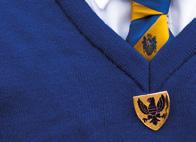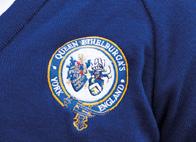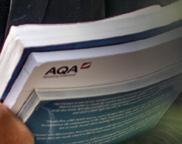






Ah summertime! The days are longer, the weather is warmer and we have more opportunities to head outside into the fresh air. We asked our friends at The Good Play Guide (www.goodplayguide.com) to recommend a range of top toys and activities that will provide hours of entertainment. Different toys develop different skills through play and these are broken into four key categories to inspire you: Active, Nature & Discovery, Arty and Educational.
For a splashtastic time, look no further than the Waterwall for hours of fun. Perfect for long summer days in the garden, your child will love designing a pathway for the water to successfully run through the tubes. They may not succeed straight away but the fun is in the trying! RRP £99.99.


Face painting is made easier with Paint Pop Face Paints. The silky-smooth paint is inside the stick; simply twist and you’re ready to paint! You can enjoy super-clean, messfree and convenient creative fun when at home or out and about on your travels. Each set includes twelve bright, vibrant colours for greater creativity. RRP £9.99.
Sometimes it’s the simplest things in life that are the most fun. Kids and grown-ups will love the giant bubbles that whoosh out at the touch of a button. Great for an active summer afternoon in the garden or for entertaining children at a birthday party, this is sure to be a big hit. RRP £12.


The Xootz Bubble-Go Scooter is a three wheeled scooter that blows bubbles as you ride, cleverly combining two popular children’s pastimes in one. With its wide footplate and sturdy three-wheeled style, younger riders will find it a breeze to use and will be the envy of their friends as they ride a scooter while blowing bubbles out behind them. RRP £49.99
This set contains four books of educational travel activities that will keep children occupied on journeys, as well as during downtime or on a rainy day. The fun, mess-free activities include puzzles, word searches, dotto-dots, stickers and colouring, getting the brain whirring as children indulge their language skills, dexterity and creativity. RRP £12.99.

Rock painting is a fun activity for kids that can be enjoyed indoors or outdoors. With fifteen smooth river rocks to paint, plus a full complement of art supplies, kids can create decorative stones to tell stories with or showcase in your home or garden, proudly displaying their artistic imagination. RRP £19.99.


Magnify nature with these 3x no-focus binoculars and built-in microphone - they are the perfect tool to encourage children to engage with and learn about nature. Looking and listening to their surroundings teaches kids observation skills and promotes the learning of new vocabulary centred around nature. RRP £26.50.
This flower garden kit makes it easy for children to plant, decorate and watch their very own garden grow beautiful cosmos, nasturtium and zinnia flowers. This is a great way to introduce children to the excitement and reward of watching their very own flowers grow. RRP £24.99.

E: editor@familiesnorthyorkshire.co.uk
T: 07734 690020
@FamiliesNYMag
@FamiliesNYMag
@familiesnorthyorkshiremagazine
The paper used in this magazine is made with or contains forestbased materials from FSC-certified forests and its use will not have harmed forests.
There are a lot of opportunities for early summer fun over the next couple of months with the Coronation of King Charles III and the half term break at the end of May.




As we head into the final full school term, check out our selection of education pieces including looking at how handwriting affects self-esteem and tips for helping your child to develop independent learning. It’s also the perfect time to think about booking your child into a summer day camp or workshop – the long summer holidays will be here before you know it!

On page 8 you will find our interview with Vese Aghoghovbia, the founder and creator of Philly & Friends, an empowering and award-winning children’s lifestyle and toy brand.
Swimming is the only sport your child can undertake that might save their life. But how can you best support them while they are learning to swim and avoid stopping their swimming lessons too soon? Find out in our article.
Look out for our Orchard Toy game giveaway– we have loads of Little Shopping Lotto games on offer! Perfect for your kids to take away on a holiday, weekend away or just while on the move. Apply inside and you’ll also ensure you receive our digital magazine with lots more content and goodies on offer.

January/February competition winners
Congratulations to all our winners. You can find a list at https://bit.ly/JFrecipients
Families is a registered trademark of LCMB Ltd, Remenham House, Regatta Place, Marlow Road, Bourne End, Bucks SL8 5TD. The contents of this magazine are fully protected by copyright and none of the editorial or photographic matter may be reproduced in any form without prior consent of Families Print Ltd. Every care is taken in the preparation of this magazine but Families Print Ltd, its distributors, franchisees and LCMB Ltd cannot be held responsible for the claims of advertisers nor for the accuracy of the contents, or any consequences thereof.
It is known that children who have good handwriting do better in school and enjoy it more. And the opposite is also true: those who struggle with handwriting are often at a disadvantage in the high-paced classroom setting. According to the Dyspraxia Foundation, children with poor handwriting are usually aware of their difficulty and their untidy handwriting can make them feel uncomfortable and isolated. Commonly, children feel depressed and frustrated as a direct result of poor writing skills.
Handwriting activates a specific part of the brain which helps establish and build the neural patterns needed for learning and memory. Studies show that children who spend time working on handwriting produce clearer and more coherent communication, along with better thought and organisation skills.
As the majority of our examinations are still handwritten, handwriting forms an integral part of our education system. Students who are unable to write legibly and articulately find themselves at a severe disadvantage. Once these skills are taught there is an enormous difference in confidence and selfesteem.
With at least ten to fifteen percent of children in the classroom suffering from poor self-confidence, teachers need watch out for early problems with their pupils’ handwriting. Simply having their writing labelled as messy or lazy by adults can contribute to a child’s low self-esteem and anxiety. This may lead children to believe that they are unintelligent and incapable of writing correctly and discourage them, continuing the downward spiral.
Unfortunately, the problem of anxiety-related handwriting problems cannot simply be overcome by using a computer. As a child grows older, there will always be everyday circumstances in which handwriting is needed. Furthermore, handwriting helps the flow of ideas and thoughts in a way which keyboarding doesn’t, so it is fundamental that children are taught to write legibly.
Although handwriting is an integral requirement of the National Curriculum, many schools are unable to dedicate to it the time required due to the huge demand of core subjects. In addition, there are many different styles and programmes being used with too many confusing elements.
With the correct time and teaching, children can master handwriting, thereby raising their confidence and self-esteem and embedding it into adulthood.

Catherine and Lisa are co-founders of Emparenting (www.emparenting.co.uk), supporting children, parents and families with insights, skills and tools to nurture the development and well-being of the next generation.
Essential for handwriting, motor development is divided into gross and fine motor skills. Gross skills involve large muscle movements such as crawling, walking, running and swimming. Fine motor skills require smaller muscles: grasping, object manipulation and drawing.

Well-developed gross and fine motor skills are essential to a child’s readiness to write. Early years activities prepare them for the dexterity and co-ordination they will need in the classroom and it’s never too soon to start the journey.

Practising gross motor skills is the first step towards two-handed tasks such as holding down paper with one hand while writing with the other. Fun activities teach small bodies! Examples include monkey bars, hopscotch, throwing and catching balls, dancing, running and swimming.
Fine motor skills are necessary for handwriting so a child can control the pencil in forming letters and use the correct pressure on the pen and the paper. This is where hand and finger activities come in. Consider these: threading beads, cutting paper, construction play, baking, finger painting and playdough.
Handwriting requirements are part of the statutory assessments for Writing at the end of Key Stages 1 and 2.
Young children move through a series of stages as they are learning to write. These reflect a child’s growing knowledge of the conventions of literacy, including letters, sounds and spacing of words within sentences:
Pre-writing - gross and fine motor movements; Pencil grip and posture; Lower case cursive letter formation; Upper case (capital) letter formation; Joining letters together; Refining letter positioning and spacing; Fluency and speed.
It should be noted that although these are the National Curriculum requirements, very few schools include regular handwriting as part of the curriculum. Supporting your child’s handwriting at home will give their skills and confidence a big boost that they will take with them into the classroom.
It’s time for celebration when our children display independence, right from when they take their first steps on their own or ride a bike without stabilisers. These are big family moments; the child delights in their achievements and parents are proud to be part of these milestone developments.
So what is independence?
Being independent means not needing support and becoming self-sufficient. A certain amount of independence comes naturally with age and experience; however, as adults there is plenty we can do to facilitate this growth along the way.
Returning to the example of babies taking their first steps, we tend to support them by holding their hand first and then a finger, before they try a few steps on their own. Clearing any potential dangerous items out of their way first, of course! We celebrate when they manage to walk alone and give them bundles of praise.
Helping your child to be independent with learning isn’t dissimilar to helping them walk unaided. We need to offer support, gently reduce that support and praise them for going it alone. This doesn’t mean stopping helping your child; instead it’s about nurturing an independent attitude and growth mindset. Our input will be age dependent and will need to be adapted accordingly.
Try some of these tips to help your child approach their learning with an independent attitude:

Establish a routine for starting homework. For example, for the first five minutes, your child works on their own or, in reverse, you work with them just for the first five minutes to get them started. Depending on the homework and age of the child, you could also consider helping out with every other question or section, then slowly building up the time between support periods.
Give them three tokens. They can use each token to ask for help. Once they have used up their tokens, they then have to continue working alone, trying to work things out themselves.
For written assignments, put a tiny mark on the page and ask your child to write up to that target before you read through it. Use the BBBB approach - ask your Brain, Book, Buddy before you ask the Boss (you!)
For online homework, make sure that any websites or apps are saved with your child’s passwords so they can go straight to what they need without your input.
When the homework involves questions, suggest your child start with whichever one they can tackle independently, then come back to the questions they need help with.

Encourage independent thinking so children feel comfortable expressing their own thoughts and opinions about their homework assignments. Talk with them about what they think worked well and what didn’t. Keep the dialogue about independence transparent. Maybe ask your child what they would like to be independent in and what support they will need to achieve this.
A growth mindset is probably the most important ingredient in achieving independence. A fixed mindset (eg ‘I can’t spell well’) can prevent growth while a growth mindset (‘I can’t spell well yet’) embraces the learning journey; at the same time encouraging other traits including resilience and persistence.
Zuzu Jordan is a Mastery for Maths specialist who has taught primary aged children for sixteen years and is interested in early years and home learning. For free homework and home learning resources, find the Facebook page Edumateuk.
Independent thinking means not taking things at face value. Ian Gilbert from Independent Thinking (www. independentthinking.co.uk) explains it as literally coming up with your own ideas and making new connections.
Philosophy for Children (www.p4c.com) offers helpful springboards to unlocking independent thinking, giving children permission to push back on existing ideologies and concepts. Questions to ignite creative thinking are sometimes called Thunk questions. For example, if I read a newspaper in a shop without buying it, is that actually stealing?
Historically, intelligence was seen as something we were gifted from birth and our levels were finite. Nowadays, research shows that mindset significantly influences how we learn and achieve. A fixed mindset person may use phrases like ‘I was never good at maths’ whereas a growth mindset person says ‘I can’t do this problem YET’ and bans the word ‘can’t’ from their vocabulary altogether.
Helping your child change their inner dialogue around facing challenges can make their learning more positive and successful.

CPA (concrete, pictorial, abstract) is a maths teaching approach that has grown in popularity in recent years. It involves using tangible objects for children to add, subtract, multiply or divide. They then progress to using pictorial representations of the objects and ultimately, abstract symbols. This way of learning is one of the foundations of Singaporean maths, now being adopted in the UK.
Concrete
The tangible, ‘handling’ stage uses physical objects to solve problems. For example:
There are four buttons in the pot. Stanley has two buttons in his hand. How many buttons are there altogether?
In this problem, the children might first count out actual buttons before moving on to non-related objects such as counters to represent the buttons. Of course, almost anything can be used to help a child master this stage from pencils to plastic pots, to counting beans and coins. You don’t need to spend money on concrete resources to support learning at home.
Pictorial
Next, learners move on to making their own representations. Returning to the example in the paragraph above, the buttons could be drawn as four circles on one part of the paper and two more on another part, representing the pot and the hand. Children can then count each small circle and get the same answer as they would have done with the buttons.
Building or drawing a model makes it easier for children to grasp
more difficult concepts, particularly when working with fractions. It enables learners to see how much of a ‘whole one’ has been shaded in and visualise the problem more clearly.
Abstract
This is where children use abstract symbols to solve maths problems.
Brooke has ten sweets and Millie has twelve sweets. How many sweets do they have altogether?
Children at the abstract stage would be able to solve the problem by writing it out as 10 + 12 = 22.


Before moving onto this stage, children need a secure understanding of mathematical vocabulary; eg ‘altogether’, ‘add’ and ‘plus’ all mean that the numbers are increasing.

Although CPA has three distinct stages, it is always useful to revisit the previous stages to ensure that learners have a full grasp of each concept.
Jemma Z Smith is Director of The Education Hotel (www.educationhotel.co.uk)

Should you be concerned? The answer is that the use of concrete and pictorial resources is not only for very young children or children who find new concepts tricky.
While running a SATs booster class, I used the bar model, a way of visualising addition, subtraction, multiplication and division using blocks, with a group of Year 6 children. They had to work out how much of one type of liquid was used in a ratio word problem. The lightbulb moments started to happen: what a privilege to witness!
Once learners understand the mechanics of problems, they can apply their knowledge from the concrete and pictorial stages into the abstract final answer and, if they are really secure, even teach it to someone else as well, demonstrating true mastery of
parents shouldn’t be concerned if their children are They are using them to their advantage and building a solid base of understanding that will see them through into later years.
During the pandemic, school absence was understandably high with some parents and children anxious about going to school and others absent with Covid 19. However, throughout the past year, problems with school attendance remain ongoing.

Historically, good attendance has been extremely important to schools – and to their Ofsted rating. Of course, attendance is also important in a child’s overall attainment and achievement. However, a lot has changed since the post-war schooling system.
Parents may remember the days of attendance awards being given out to those who managed an impressive one hundred percent attendance across the school year. Tough for those whose attendance suffered because of circumstances out of their control. Not to mention children who had a chronic illness or disability and required absences for doctor and hospital appointments. These children would have never had the chance at receiving a one hundred percent attendance award.
These problems are still very much part of school life but now children’s mental health is very much at the forefront of nonattendance at school. In a survey conducted in summer term 2021, the most common reasons reported by the DfE for absence were that:

• pupils were anxious;

• pupils or parents had specific health needs, including those identified at that time as clinically vulnerable or extremely clinically vulnerable;





• pupils had disengaged from education during the pandemic.

The DfE reported that children’s anxieties are often unrelated to school, relating instead to factors such as family members being ill, seeing parents under more stress than usual, domestic violence and financial hardship.


Many employees are entitled to time off due to their mental health but a child needing time off from school because they are suffering from anxiety isn’t always met with the same level of understanding as a physical ailment. To add to the pressure felt by families, if a child is off for a prolonged period of unauthorised time, this can result in a fine.

The School Attendance: Schools Bill Factsheet (http://bit.ly/schoolattend) published by the government last year addresses problems regarding attendance, with a focus on school being the ‘best place for children’s attainment and wellbeing.’ However, it could be argued that the guidance falls short of considering individual circumstances and applies pressure to parents to make sure children, no matter how they are feeling, are attending school.
Catherine is a former UK primary school teacher, now writing for PlanBee (www.planbee.com) about issues affecting teachers, schools and pupils.

Families spoke to Vese Aghoghovbia, the founder and creator of Philly & Friends, an empowering and award-winning children’s lifestyle and toy brand.
What inspired you to create this brand?
Becoming a parent in 2017 opened my eyes to the inequality in play. I realised how little representation was in the playroom and on the bookshelf at the time. I wanted to write a ‘love letter’ to my little girl to tell her how precious she is and give her the gift of representation because you have to be the change you want to see.
When I wrote Who Do I See in the Mirror? I didn’t realise then that I was writing a love letter to many children worldwide and creating a brand they would eventually fall in love with. This little idea for a simple children’s book has grown into a much-loved, award-winning children’s brand with giving back embedded in its DNA.
Tell us about your first book
Who Do I See in the Mirror? is a simple yet powerful book about a girl who goes on a journey to discover what makes her truly special. It ends with the strong message that what is on the inside matters most. It is a very affirming book that encourages our little ones to love who they are on the inside and the outside. According to the judges at Junior Design Awards, ‘it is a great library staple for all children’.
How did your vision for the brand develop?

When I first wrote Who Do I See in the Mirror? I thought my next step would be to publish a series of educational and
empowering books. However, as the business grew it became clear it was a lot more than that. We work very closely with our community and respond to their requests in line with our brand vision and mission. We are adding a drop of colour to the playroom and the bookshelf, providing a solution to the growing demand for diversity in play.
How has creating Philly & Friends impacted you as a mother and what do your children think of what you do?

My kids love helping me prepare packages for customers. My daughter says I’m a doll maker but also an engineer and a mum. I love that she gets to see what I do.
The other day, someone asked her what she would love to do and she said ‘all the jobs in the world!’ That made me chuckle but also made me proud to know that she doesn’t feel limited in what she can become.
What is your favourite Philly & Friends product and what are your children’s favourites?
I can’t pick one. I love them all but Who Do I See in the Mirror? will always have a special place in my heart because it kickstarted this journey. My kids have influenced every single product and I’ve seen them love each one at different stages. My daughter has gone from reading her book every night to sleeping with her Philly dolls and now she’s giving me suggestions on the next few products.
What’s been the hardest part of your journey with the brand so far?
Self-publishing. I had to teach myself everything, figure out each step and self-fund the project.
Self-publishing is not for the faint-hearted and requires significant financial, mental and physical investment. You are the writer, marketer, producer, salesperson, logistics, supply chain manager; everything. There were many times I wanted to give up but I am glad I didn’t because the feedback, support and appreciation for the book have been nothing short of amazing. What advice would you give other parents embarking on a similar path to you?
Don’t hold yourself back, you can do it. Plan, brainstorm, research. There’s a world of information on Google and it’s all free. Find someone who is doing something similar and ask them lots of questions.
Where next for Philly & Friends?
The future of diversity in play depends on small inclusive children’s brands growing and becoming successful. In the next five years, I hope that our books and toys will be in the homes of every little boy and girl.
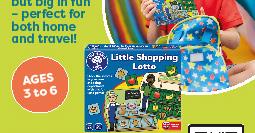
Philly & Friends has a range of books, wall art, dolls, jigsaws and peg sets designed to instil confidence and self-love through the power of representation. Find them at www.phillyandfriends.com

Having time away from work and being a ‘mummy’ takes some adjustment at first; but before you know it, you’re in the thick of motherhood and busy with your baby. After a few weeks, the idea of work becomes a distant memory and parenting routines become your new norm.

Fast forward a few months (or even years) and the time comes to face going back to work. This can conjure up all sorts of different emotions, including lack of confidence and doubts about your workplace ability. Mixed feelings are completely normal and with a bit of work on your self-belief and confidence you will be good to go when the time comes.
Here are some ways to boost your confidence ahead of your return to work:
Share your feelings. Try to avoid putting on a brave face to please people around you. If you are struggling, talk about it. You will be surprised how receptive your family and friends are when faced with the truth.
Be kind to yourself. Accepting that life has changed is a biggy. Life is definitely different now you are a parent but it doesn’t mean to say that it is either better or worse - just different. Let’s face it, you’ve had a baby so you can achieve anything!
Explore negative thought work. This involves being aware of negative thoughts and replacing them with positive selfstatements.
It is not uncommon for women to bombard themselves with negative thoughts every day. But there’s hope! These CAN be turned around.
As a process, actively challenging and reversing negative thoughts has been proven to increase self-belief, self-worth, self-care and confidence.
Start a habit of writing down all your negative thoughts on lined paper, missing a line between each one. For example: ‘I hate my nose,’ ‘I feel like people will laugh at me,’ ‘I am rubbish at running,’ ‘I hate my tummy,’ ‘I am not good at talking in meetings,’ ‘I hate Zoom’ etc. If you hear more negative thoughts, add them to the list.
Then reframe each negative thought. This means working down the list, changing each negative statement to a positive one. Thus ‘I feel like people will laugh at me’ becomes ‘I feel like people will laugh with me,’ and ‘I hate my tummy’ becomes ‘My tummy produced my daughter!’

You get the idea. Now tell yourself the new positive statements, out loud, on repeat: forever.
Support network. It’s important to have a robust support network around you before and when you return to work. While it isn’t always easy (due to lack of family nearby, expensive childcare costs), knowing there are people you can rely on if you need them will help you feel better. Asking for help is key and although it might feel hard to do, if help has been offered, do take it.
Dress the part. This doesn’t have to mean brand new clothes and shiny new handbags; there are decent bargains to be found in charity shops and no one will know! Give yourself time in the morning for skincare, make-up and groomed hair so you look and feel the part.
Read your CV and update it. Seeing the facts down on paper really does help.
Lucy Baker is a self-employed mother of three and founder of coaching business, She Coaches Confidence. Read more at www.shecoachesconfidence.com
Journalling is the practice of logging your thoughts, providing an insightful way of problem-solving and getting to know yourself. Apart from the initial cost of a journal, it is a free tool that you can use again and again.

Here’s how to get started:
Buy yourself a special book to record your thoughts. This might be a hardback with a lovely cover, either lined or with blank pages for doodles and sketches. Find a favourite pen and set aside ten minutes a day to write with no distractions.
Write down exactly what is in your head. Questions can be good prompts: ‘Why am I worried about going back to work?’ ‘Do I believe in myself?’ Freely write your answers as thoughts come into your head.
At first, journalling might feel a little odd and the words you commit to paper might not make much sense; but trust the process and literally go with the flow. There are no rules. This is your private space to reveal and log the progress of your mindset.
If you’re looking for places to visit and things to keep the kids entertained this Springtime, then our What’s On guide is packed full of ideas for places to take the kids, whatever the weather, day’s out, local events and shows.

27 - 29 May
Harewood House
The Great British Food Festival
The Great British Food Festival is returning to Harewood this year and the recipe for the weekend? Well, take a good helping of local and artisan producers, a big serving of tasty hot food vendors, add a dash of bars, a sprinkling of children’s activities, a dollop of top chef demos, stir in some competitions, with lashings of excellent live music, and mix together to make a fabulous foodie family day out!
27 May - 4 June
Fountains Abbey & Studley
Royal Water Garden
May Half Term Trail
This half term explore the ‘sanctuary for nature’ in the deer park. Discover and learn about where different beasties live by exploring grassland, freshwater, deadwood, woodland and man made habitats on the free self led family trail. Pick up your trail map from any of our admissions points to begin your adventure!
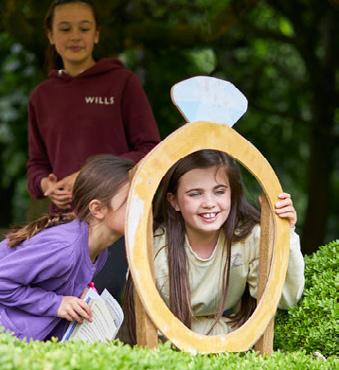
27 May - 4 June
Mother Shipton’s Cave
May Half Term
This half term, gather all your favourite shipmates and join us for an ARRRR-mazing expedition to Treasure Island!
27 May - 4 June
Scarborough Castle
Kids Rule!
Get ready for a right royal knees-up at our Kids Rule events this May half-term. Join us in the grounds of Scarborough Castle to celebrate King Charles III’s coronation with merry monarchs, hands-on activities and fresh-air family fun.
1 June
Danby Lodge National Park Centre
The Wild Wild Quest
What creatures live here? Help us discover what unusual and marvellous plants and creatures live at our Centres.
1 June
York Art Gallery
Marvellous and Mischievous Mini Pride
Take part in fun, creative activities from badge making and animation to pride banners and story times and with our Curious Artists. Taking inspiration from Literature’s young rebels featured in the Marvellous & Mischievous exhibition.
27 May - 4 June
Around the World in 80 Stories
Visit Lotherton for Spring half term as we delve into stories old and new and travel around the world in 80 stories. There will be stories for all ages, excitement and adventure around the estate for families to get involved in.
27 May - 4 June
The Web Adventure Park
May Half Term at The Web

Check out the brand-new Lightyear Laser Zone this half term at The Web Adventure Park. Dazzling Darren will also be back every day with his music and magic game shows, plus all the normal things –unlimited goes on the 12 fairground rides, huge indoor play, 2 bouncing pillows, animal zone, water play, sandpit and so much more.
2 - 15 June
Various locations in York
York Festival of Ideas 2023

York Festival of Ideas promises to spark children’s imaginations with lots of FREE and fun hands-on activities. Explore space in virtual reality, have your favourite toy turned into a fully-animated movie star, learn about nature, join an indoor dig, and much, much more. Enjoy some crafty, puzzling, scientific and historical fun at the Discovery Zone and Festival Fringe Family Fun Afternoon, join the Pride festival and parade, find out how a giant seventh-century ship is being rebuilt and try out something new as you participate in a Brazilian dance and percussion workshop. And don’t miss acclaimed children’s author Michael Morpurgo, who will read an abridged version of his bestselling novel War Horse in the stunning surroundings of York Theatre Royal, accompanied by actor and musician Ben Murray, with music and songs from the National Theatre production. - yorkfestivalofideas.com
9 June
York Art Gallery
Shadow Puppet Workshop
27 May - 6 June
RHS Harlow Carr
Sow Awesome!
Come to RHS Garden Harlow Carr this May half term as we educate children about where our food comes from before it reaches the supermarket and inspire them to grow at home. Explore the edible garden with The Garden Detectives, sowing some delectable seeds and there is even the chance to pot on a tomato plant to take home & grow until it’s ready to harvest. Rhs.org.uk/harlowcarr
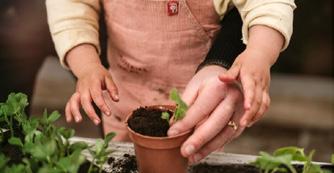
Create your own shadow puppet story! Using stimulus from the exhibition, we will improvise our own story performance, with the children each creating their own character puppet and choosing what happens to the story. Then we will perform back to parents at the end of the session!
10 June
York Racecourse
Yorkshire Baby Show
From pregnancy to parenthood, the Yorkshire Baby Show is the must attend 2023 event for all expecting and new parents (0-5 years). Showcasing local businesses, award-winning brands, products and services from all of Yorkshire - North, South, West and East Riding!
Lotherton Hall, Leeds
Yorkshire Baby Show
1940s Weekend
The family-friendly tribute shows will be held in the beautiful surroundings of the gardens and will feature songs and dance from the 1940s, evoking the wartime spirit of World War II entertainment.
18 June
Goldsborough Hall
Father’s Day
Treat your Dad like a king this Father’s Day with a visit to Goldsborough Hall for either Lunch or Afternoon Tea.
29 June - 2 July
York Theatre Royal
Hey Duggee - The Live Theatre Show
24 & 25 June
Castle Howard
The Great Yorkshire Creature Count
Join us for a whole weekend of wild activities - from mini beasting and storytelling to bird watching and guided walks with wild experts - and help us to discover, count and record the creatures that live in our walled garden. Free with a Gardens ticket.

Harper (9) lives in a village just outside of Tadcaster with her 2 brothers, Noah (12), Lucas (11) and sister, Tilly (7). This issue she is going to share her review of her family’s day out at Castle Howard, York.

Hello, my name is Harper and I am going to tell you about our recent family trip to Castle Howard. My favourite part of the day was playing in the adventure playground called Skelf Island, it even had a rope bridge that went across the water, it was VERY wobbly.
While we were there they had a Willow Sculpture Trail to do, we had to find all the different animals including a surprise one hidden at Skelf Island, it was a lot of fun even though we took a wrong turn and got a bit lost!
Inside the Castle was also fun, as it was Easter they had hidden lots of lovely little colourful eggs about the rooms which kept me and my siblings busy while Mum and Dad were reading the information about the Castle in each room.
If you struggle with walking or are just tired out after a busy day of playing in Skelf Island
Hey Duggee The Live Theatre Show is going to be huge and will feature Duggee, the Squirrels plus many more of your favourite characters! Betty wants to make costumes, Happy wants to sing, Tag wants to make music, Norrie wants to dance, Roly wants jelly and they all want you to join them at the Clubhouse. There is so much to do, but luckily Duggee has his theatre badge. Will you get yours too? A-Woof!

27 May
Harrogate Theatre
The ‘Not So’ Grimm Twins
Meet world-famous twins Jake and Will Grimm, as they tumble from their magical wagon brimful of stories collected from every inch of the world – from Rapunzel to Red Riding Hood. Behold as your favourite tales are re-spun by our storytelling duo (oh, and their little sister Lottie too!).
2 June
York Theatre Royal
Ministry of Science
Join our presenters as they dive deep into the world of science and look at how science shapes the modern world we live in with a few loud bangs along the way! Expect 20ft liquid nitrogen clouds, exploding oxygen & hydrogen balloons, fire tornados, hydrogen bottle rockets, ignited methane and even a self-built Hovercraft!
then you can hop on the Kelly Train, it stops at the carpark, the Castle & at Skelf Island. We had lots of fun and we are sure that you would as well.
Our Family Rating: We all enjoyed the day and would love to visit again 9/10
If your child would like a chance to be one of our Roving Reporters then please email a review of one of their favourite places to visit in North Yorkshire along with a photo and a little about them to editor@ familiesnorthyorkshire.co.uk. We can’t guarantee that all reviews received will be used.
15 - 17 June
Grand Opera House, York
Demon Dentist
Join Alfie and Gabz on this fabulous adventure, as they investigate the strange events happening in their home town! Children are leaving their teeth for the tooth fairy and waking up to find odd things under their pillows! Alfie and Gabz are determined to get to the bottom of the mystery - but no-one could have dreamed what they’ll discover when they come face to face with the demon dentist herself, in this hilarious and thrilling story!
Mum2Mum Markets
Harrogate High School, HG1 4AP
27th May, 2 - 4pm
15th July, 2 - 4pm
harrogate@mum2mummarket.co.uk
Richmond School, DL10 7BQ
25th June , 10am - 12pm
nyorks@mum2mummarket.co.uk
www.mum2mummarket.co.uk

Out and About with this issues roving reporter, Harper Finlayson.
Summer day camps provide fun, safe and nurturing spaces for children. Not just useful childcare for working parents, there are many benefits for children too. Consider these:
Learning new skills
Summer camps offer a variety of activities that allow children to explore new interests and develop talents they didn’t know they had or take an existing talent to a new level.
Promoting physical activity
Many day camps provide a wide range of physical activities including sports, outdoor activities and games. This helps to promote a healthy lifestyle and develop a lifelong love of physical activity.
Developing independence and self-confidence
Being in a setting that isn’t home or school and where there are no parents can give children a sense of independence. They learn how to take care of themselves, make their own decisions and solve problems on their own.
Taking on new challenges and trying new things gives them confidence in their abilities.
Fostering creativity
Creative juices flow when children experience theatre arts, dance, music, writing, arts and crafts. These all help to stimulate their imagination and expressive thinking.
Leaving technology behind
As fantastic as the online world can be, it is always great to expose children to the joys of a good old-fashioned kick about
and team games in the fresh air. Who knows, they may even enjoy it MORE than gazing at a screen!
Building social skills
In a whole new supervised peer group, children learn to work together, communicate effectively and develop a sense of community.
There’s much to be gained too if they are learning and playing alongside children from different backgrounds, cultures or abilities from their usual circles, as this is an opportunity to appreciate difference. Kids will also build friendships outside their established school network.
Enjoying the outdoors
Climbing trees, changing a bike wheel or building an outdoor camp can give your child a whole new set of skills while enjoying adventures they might not otherwise experience.
Nurturing leadership and teamwork
By encouraging teamwork, co-operation, empathy and selfconfidence, summer day camps will help your child develop emotional intelligence.

Ofsted registration
While most childcare services have to be registered with Ofsted, holiday clubs are often exempt so you need to check.
If there isn’t an Ofsted report, you may want to ask what policies are in place to ensure children’s safety, such as safeguarding procedures, health and safety procedures, food handling, staff to child ratios and public liability insurance.
All staff and frequent volunteers at a holiday club must have enhanced DBS checks. Ofsted registered holiday camps will be required to have staff with training in first aid, safeguarding and if applicable, food handling. It is no longer a requirement for outof-school club staff to hold a formal qualification. However, many providers will be required to have qualified staff to get childcare insurance.
Check the website or make enquiries.
What can you do if a holiday camp is cancelled? You should get a refund but the terms of the booking may exclude refunds for cancellations for reasons beyond the camp’s control.
Can you get a refund if your child refuses to go to the camp?
If the holiday camp doesn’t live up to expectations, getting a refund maybe difficult. Try talking to the manager.
Can you get a refund or partial refund if your child is absent due to sickness?
This will depend on the terms of the booking.
What should you do if your child is injured at a holiday camp?
If the camp is Ofsted registered, you could report the incident and you may be able to get a refund. In a more serious case, you may want to seek legal advice.
Are holiday camps obliged to accept children with special needs?
Holiday camps must ensure that there is full inclusion and make the necessary reasonable adjustments to accommodate each child’s needs.
According to Swim England, nearly two thirds of parents and guardians of children ages 7 to 11 haven’t been swimming with their children in more than a month. They’re missing out: regular family swims can be enjoyed whatever the weather and help children develop their swimming ability more quickly.

If you’re booking your child in for swimming lessons, here’s how Swim England recommends supporting them:
Lessons are fun. Learning how to swim should be fun, so check with the lesson provider that games and activities are regularly included within their programme of teaching.
Timing is key. Book lessons for a time that is easy to fit around your family commitments.
Pay attention. If you are poolside during lessons, be ready to give your child a wave and lots of encouragement. Putting away your mobile will help your child understand that these lessons are important.
Celebrate their swimming milestones. Rewarding children keeps them motivated to improve in their lessons. Swim England’s Learn to Swim Awards and app give children regular celebrations of their swimming milestones.
Regular reports. Parents should expect regular updates either through reports or verbal feedback. If your child is struggling in lessons, talk to the swimming teacher and ask what you can do to help encourage them. If they haven’t started swimming lessons yet, visit the pool before lessons to get your child used to the environment.
Don’t end lessons too early. Water competency is often misinterpreted by parents and guardians as child being able to jump into a swimming pool and being able to put their face in the water. The reality is very different.
Learning to jump into a swimming pool is an important safety skill that is often achieved in the early stages of your child’s learning to swim journey. It is a skill which mimics the motion of falling into water and teaches swimmers to get themselves safely to the side without panicking.

However, there are many other water safety and survival skills that a child needs to learn before they are safe in water, such as floating and treading water.
So don’t be tempted to stop your child’s lessons before they are competent swimmers and have achieved Swim England’s minimum water competency standards.

For further information, visit www.swimming.org

Adult supervision is crucial to keeping young people safe in, on and around the water but have you ever thought about whether the colour of your child’s swimwear could make a difference in preventing drowning? If the worst did happen, being able to quickly find a child in the water could save vital seconds and be the difference between a fatal and non-fatal incident.
Swimwear colour makes a huge difference to whether a child can be seen even on the surface of the water, let alone if they are underwater. The colour of the bottom of the pool will make a difference but when buying your child’s swimwear, think bright, neon, contrasting colours which are always easiest to see in a swimming pool.
For swimming in an outdoor setting, the results are the same. The caveat for this is that open water settings, such as beaches and rivers, also come with various hidden dangers such as tides and currents to consider before allowing your child to swim.

When we have non-stop days, it’s easy to lapse into ‘one-waystreet parenting.’ That’s where as the more powerful grownup, you tell your child how to behave. But parenting becomes so much easier when it’s a two-way transaction and you make a conscious effort to listen to what your child has to say as well.

As they grow, children are in a constant process of learning to recognise and describe their needs and emotions. However, with their developing vocabulary they can’t always clearly articulate their big feelings so they don’t always feel heard.
Children who don’t feel heard often act out how they feel. There could be angry tantrums, strops, defiance or attention-seeking behaviour to force you to pay attention. Sadly, this behaviour has the opposite effect.
The good news is that just one simple shift can transform your relationship with your child. Next time your child explodes, understand they are struggling with giant feelings. Rather than thinking about how to discipline them, observe their behaviour with curiosity, followed by empathy.
For example, we grown-ups tend to hear repeated requests for the things kids want as whingeing or nagging. Rather than ignoring them, show them you heard them the first time by looking at them, getting down on their level if they are still little, repeating what they have just said and giving them a response that works in that moment, even if it’s an explanation for why you are saying ‘no’.
Of course, you can’t be expected to drop everything, every time or give kids whatever they want.
Keep some phrases in your back pocket like: ‘I know it’s hard to
wait. I’ll be there soon,’ or ‘I heard you calling me. Give me five minutes while you finish your Lego house.’ Even if it’s not the answer they want to hear, they will ease off once they know the message has got through. Just make sure you stick to your word. This kind of listening is not about giving in or letting them have their own way. It’s about remembering that children are on a steep learning curve towards naming and managing feelings that continues well into their teenage years.
Tanith Carey is co-author, with Dr Angharad Rudkin, of What’s My Child Thinking: Practical Child Psychology for Modern Parents. The book includes many topics including the best ways to communicate with children. Published by DK books and available from www.bookshop.org
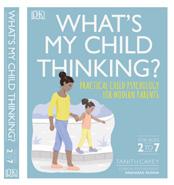
rhs.org.uk/harlowcarr
Sat 27 May – Sun 4 Jun
Our gardens are bursting with lifethere’s no better time to learn how to grow your own. Discover how fun and easy it is to plant and harvest vegetables and learn more about where our food comes from, as a family.
Your visit supports our work as a charity.
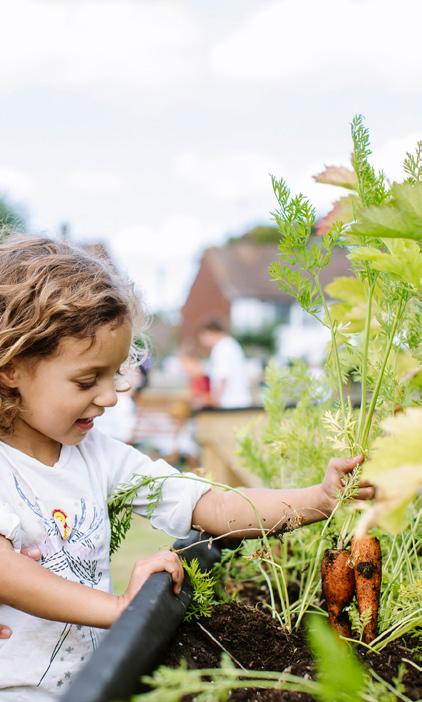
As a parent, guardian and or carer, we understand how important it is to ensure that your child, no matter what their medical condition and or abilities, has the best possible start in life.
This involves an array of considerations, including the educational provisions any school may be able to offer your child, to allow them to thrive and reach their full potential. Should you have the challenging pleasure of raising a child with special educational needs, finding an appropriate environment and support in either a mainstream setting, and, or a specialist school, to assist with allowing your child to reach their full potential, can be challenging, to say the least.
An Educational Health Care Plan (EHCP) is a legal document tailored to meet the needs for a child and or young person aged between 0 -25 years of age.
An EHCP is designed to identify the individuals specific educational, health, and social care needs. In addition if executed correctly, it should explain the additional provisions and or reasonable adjustments that the school are to provide, to help meet that individuals needs, to allow them to get the most out of their education, which should ideally allow that child and or young person to achieve their goals.
Unfortunately, obtaining, maintaining and the implementation of an EHCP is not always straight forward, and parents of Special Educational Needs Children can sometimes feel unsupported by not only their school but their local authority, especially when issues pertaining to provisions as to how best support your child are met with road blocks pursuant to the funding of those provisions, which from a parental perspective is understandably, an unreasonable justification as to why not to assist any child, let alone a vulnerable one.
There is legislation, guidance and policies which are worth taking into consideration in the first instance, which are designed to help your child with special educational needs, such as:
• The SEND Code of Practice 2015
• Children and Families Act 2014
• Equality Act 2010
• Special Educational Needs and Disability Regulations 2014
• Your Schools SEND and Admissions Policy
As a starting point, we would recommend approaching your school in the first instance to discuss any issues and concerns you believe your child is experiencing. We would also recommend that you follow up any conversation in writing, and or, keep a record of their progress and any issues that they encounter with any potential triggers, where appropriate, so that this may be looked into by a relevant professional should it be necessary to do so.
Here at Hartlaw LLP we can help you in obtaining an assessment of your child’s educational health care needs, and or assist you in amending the contents of an EHCP, when preferred outcomes and or the implementation of an EHCP does not go according to plan, with supportive evidence, to ensure that it is accurate, precise as possible, and fit for purpose.

In addition to special educational needs and EHCPs, we can also help with admissions, exclusions, bullying, discrimination and judicial reviews. Please contact Rebecca Watson on 01937 547024 or email rebeccaw@hartlaw.co.uk for more information.


Win a four night stay for a family of up to six people at an Away Resorts location of your choice.

Experience one of Away Resorts’ fabulous UK locations, from countryside to coast, all within areas of natural beauty and close to places of interest. Your accommodation will be off-the-scale amazing and new experiences await at every turn. Jam-packed with activities, entertainment, fantastic facilities and even events, every member of the family will be grinning from ear to ear.
Explore the New Forest in Hampshire, Tattershall Lakes, Appletree or Cleethorpes Pearl in Lincolnshire, Mersea Island in Essex or Golden Sands in North Wales – or perhaps somewhere else will take your fancy. Full list of locations at www.awayresorts.co.uk/parks.
Enter at familiesmag.co.uk/go
Closing date: 30 June 2023
T&Cs: Off-peak periods only, subject to availability. Travel, meals and additional activities are not included. Excludes Boston West, Clumber, East Fleet Farm, Gara Rock, Kenwick, Piperdam and Woodland Lakes. Prize must be taken by 31 May 2024. Full T&Cs at https://bit.ly/FamAwayRes23











































